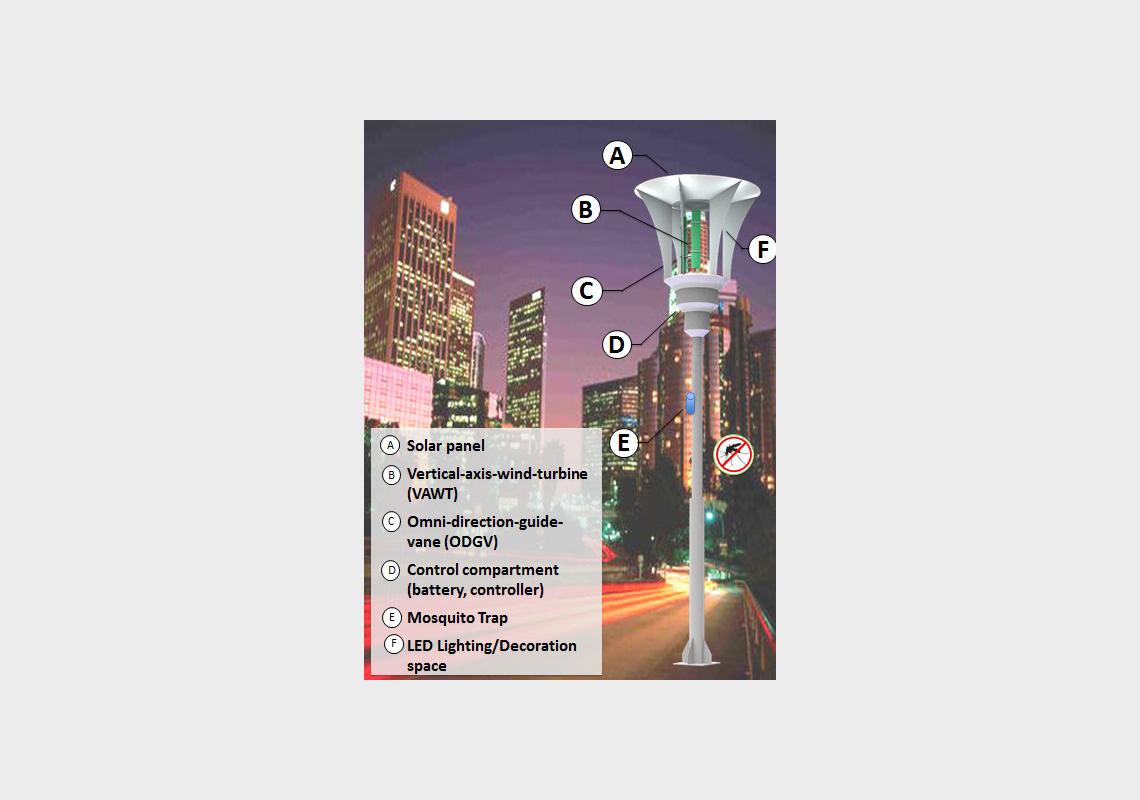Dubbed the ‘Eco-Greenery Lamp’, the technology combines the function of an LED street lamp with a mosquito trap, and is powered by wind and solar energy, thus providing communities across the developing world clean power to light their streets and also protection against mosquito-borne diseases such as dengue fever.
Dr. Chong, a mechanical engineer and the lead researcher, said the integrated Eco-Greenergy Lamp has been proven to fight mosquitoes, while reducing greenhouse gases.
According to him, the lamp’s wind turbine is suitable even at “low and unsteady” wind speeds sometimes found in the tropics.
The mosquito trap relies on the mosquitoes’ natural attraction to carbon dioxide, which is breathed out by their human prey. The trap produces this gas to lure the insects and then a fan prevents them from escaping.
This feature is designed to reduce the prevalence of dengue fever, which is transmitted by mosquitoes and whose prevalence is growing in Malaysia.
Dengue is widespread in the tropics. Although this disease rarely kills, it may cause as many as 390 million infections a year, and about ten times as many people across 128 countries may be at risk of infection.
The lamp can be sold for use in “suitable locations all around the world” that have the infrastructure in place to set up and maintain the lamps, added Wen Tong.
But although LEDs last much longer than conventional street lighting, each lamp costs around US$2,850 (RM12,825) to buy and install, making it quite expensive.
Two of the lamps have been installed through a pilot project at UM, with three others at the university’s Field Studies Centre in the state of Selangor, according to Dr. Chong. Needless to say, once the results from this pilot are released and the lamps are available commercially, the benefits to countries fighting mosquito-borne diseases are immesnse.
By Harris Rajahdin



